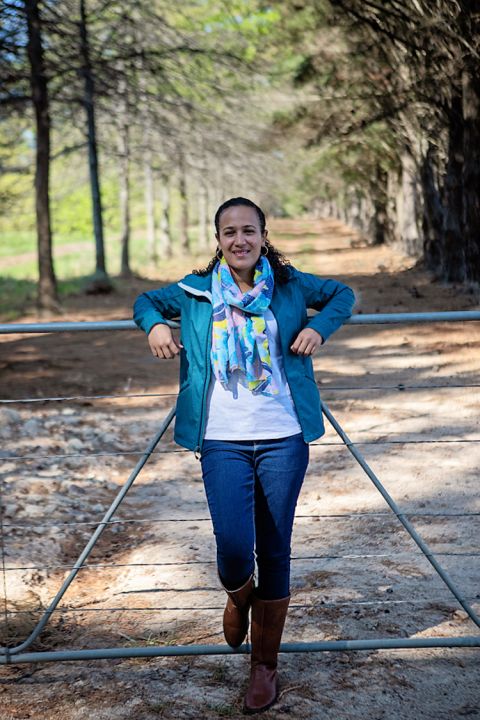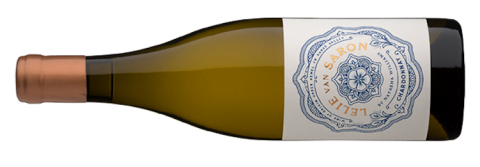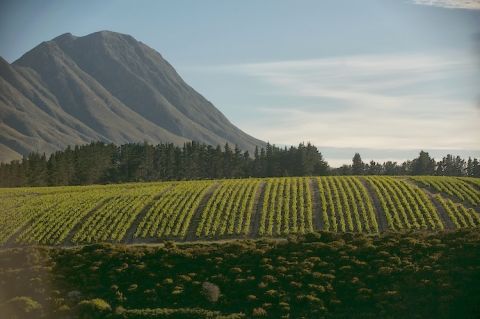Lelie van Saron Chardonnay, Upper Hemel-en-Aarde Valley

A heartwarming success story – with a twist.
From 270 rand, £31, $40
Here’s a wine with a great, though evolving, story.
Natasha Williams was one of the winemakers of colour cited by South Africa’s queen of old vines Rosa Kruger in this 2020 social progress report on South Africa as having managed to find a decent job. Two years later she was named by Rüdger Van Wyk of Stark Condé in this South African catch-up as having established herself and, significantly, her own label on the Cape wine scene.
Williams was brought up in Saron, a mission station north of Swartland, by an abstinent Muslim mother and a father who disapproved of wine. The extraordinary story of how she became, via an internship at Jordan in Stellenbosch and stints in the Jura and Sonoma, one of South Africa’s most accomplished winemakers, is best told by Tam in our optimistic combined article last July, Real progress in South Africa. She was always interested in science and got at place at Stellenbosch University to study microbiology, but switched to oenology in her second year because she became fascinated initially by the science (not taste) of wine. She was encouraged in this by Charla Haasbroek, then studying winemaking at Stellenbosch and now running, virtually singlehandedly, the isolated Sijnn wine operation in the far east of the Cape’s southern coast.
Key to Williams’ progress has been her work as winemaker at the enlightened Bosman Family Vineyards in the inland district of Wellington, an outfit also well described by Tam in that joint article. She has until very recently been responsible for red winemaking under senior member of the (all female) team there, Corlea Fourie. Bosman long since acquired an additional farm in the cool, maritime Upper Hemel-en-Aarde in the hinterland of Hermanus on the Cape South Coast and it is this farm that has so far supplied the fruit for Williams’ own label Lelie van Saron.
When calmly presenting the wines to me recently in Hemel, she explained that Lelie van Saron means ‘lily of Saron’ in Afrikaans, Saron being the name of her small home town north of Swartland, where apparently she was known as a lily by her parents. (She now has their approval.)
This low-alcohol (12.8%) 2021 Chardonnay has all that I seek in a fine Chardonnay: an attractively mineral nose with both tension and fruit as well as real focus and balance that promise well for the future. I gave it a score of 17 out of 20 and reckon it will continue to improve for up to another five years.
The hand-picked fruit has so far come mainly from Bosman’s De Bos vineyard (pictured below), planted in 2009 and 2011 on a mixture of decomposed granite, sandstone and quartz at the foot of the Babilonstoring Mountains west of the Hemel-en-Aarde Valley. It is dry farmed and was planted to the high density of 6,666 vines per hectare.
Like all the Bosman Hermanus wines, Williams’ own wines have been made at the Wellington winery. The spontaneous fermentation is left to progress slowly over two months in concrete and the oxidative juice that ‘looks like Coke’, according to Williams, is then transferred to mature for 12 months, half in concrete egg and half in old 225- and 300-litre barrels. SO2 additions are low and, Williams told me, ‘I’m happy to let malo go its own way.’
The 2020 (13.5%) is every bit as successful as the 2021 – really pure and fresh and sophisticated, yet not remotely austere. And it lasts and lasts on the palate.
I should also add that I was completely blown away by the Lelie van Saron Syrah 2021 from the same source, but can’t find it in commercial circulation.
However … there is about to be a big change in Williams’ life. With the 2023 harvest over in South Africa, she has been lured to another wine producer in Upper Hemel-en-Aarde, the new, Belgian-owned Hasher Family Estate, on the site of the old Sumaridge property, where much replanting is taking place. One of the attractions for Williams is that her partner, Wade Sander of Brunia Wines, is based on the Sander family estate in nearby Stanford.
I asked Williams where she will be sourcing future vintages of Lelie Van Saron wines and she emailed me to say that she hopes to continue with her past fruit sources.
In South Africa the wine sells for just 270 rand, the equivalent of about £11 – but exchange rates do funny things in South Africa. Lelie van Saron wines are imported into the UK by Indigo Wines, who sell this wine for £31 via their online store The Sourcing Table. They claim that Finley’s also already have stock of the 2021.
According to Indigo the following retailers currently have stock of this 2020: Drop Wine of Kensington, Highbury Vintners, Little Wine Shop, Nysa’s branches in south-west London and Wine Freedom. Nysa’s price is £36.95 a bottle while it is £36 at LoveWine of Jersey.
Wiliams’ wines are imported into the US by Vine Street Imports, which seems to have an excellent portfolio of up-and-coming South African wine producers. According to Wine-Searcher.com the 2020 Chardonnay is $40 at D.Vino Wines & Spirits of Brooklyn.
Lelie van Saron, and Natasha Williams, are definitely names worth watching.
See our nearly 5,500 tasting notes on South Africa's generally great-value wines.
Become a member to view this article and thousands more!
- 15,409 featured articles
- 275,024 wine reviews
- Maps from The World Atlas of Wine, 8th edition (RRP £50)
- The Oxford Companion to Wine, 5th edition (RRP £50)
- Members’ forum
- 15,409 featured articles
- 275,024 wine reviews
- Maps from The World Atlas of Wine, 8th edition (RRP £50)
- The Oxford Companion to Wine, 5th edition (RRP £50)
- Members’ forum
- 48-hour preview of all scheduled articles
- Commercial use of our wine reviews



